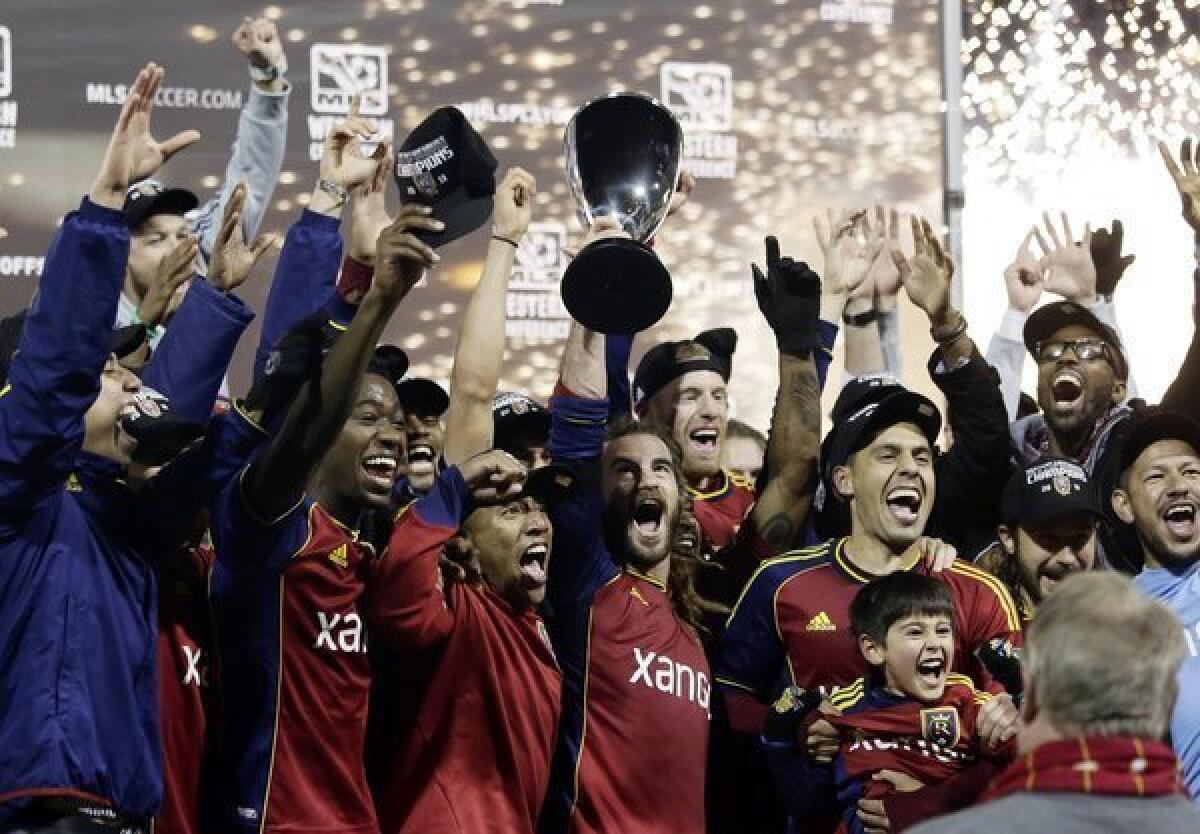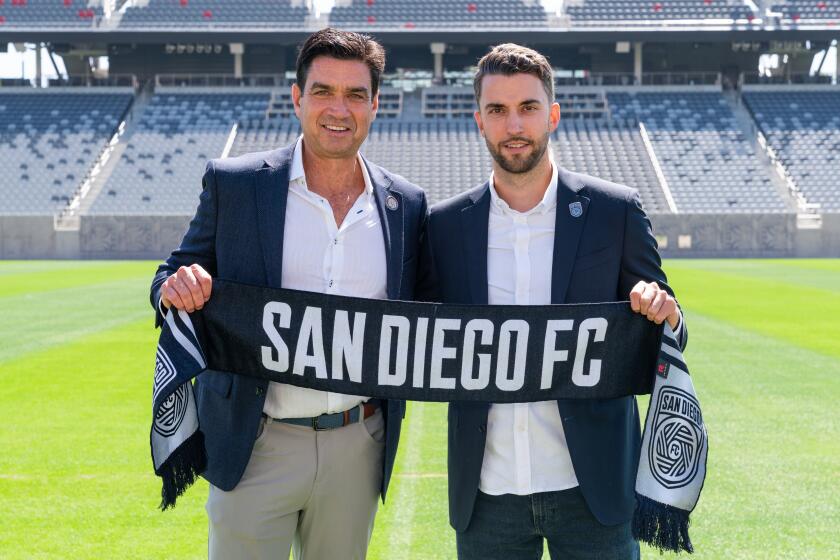Major League Soccer, stronger than ever, needs changes to truly thrive

Major League Soccer has been on a bit of a roll lately.
Over the last six months the league has added two teams, topped 6 million in total attendance for the second consecutive season and, according to Forbes, seen the average value of its franchises rise 175% from 2008.
Financially, MLS has never been stronger — which is why a half-dozen other cities, from Miami to San Diego, are begging to join.
That’s the good news. Here’s the bad: An unnecessarily drawn-out postseason schedule, flagging TV ratings and a final featuring the two smallest cities in the league are robbing MLS of much of that momentum, putting a damper on what had been one of the most compelling seasons in the league’s 18-year history.
The playoffs began the day before Halloween — the same night the World Series ended — and won’t finish until next Saturday, when Real Salt Lake plays Sporting Kansas City for the MLS Cup.
After 12 matches in the first 12 days of the postseason, the league took a two-week break between legs of the conference finals for World Cup qualifying. By the time the playoffs resumed, many of the story lines had faded and most casual fans had forgotten who was playing.
Then came another two-week break ahead of the championship game. At a time when the league should have been building interest and drama, it stifled it by playing three games in four weeks.
The Super Bowl may benefit from weeks of hype, but not an MLS Cup featuring cities with a combined population smaller than that of El Paso. Add that the match will start at the same time as the Southeastern Conference football championship game on CBS and it’s clear ESPN will take a ratings bath on the Cup final.
A tiny audience for its most important event of the year is the last thing MLS needs heading into what some team owners are calling the most important TV rights negotiations in league history.
MLS’ TV deal expires after next season, and the league is reportedly seeking a significant hike from the combined $26 million NBC, ESPN and Univision are paying per season under the current agreements. That could be a tough sell given that regular-season ratings on ESPN fell nearly 30% this season to 271,000 viewers. The WNBA drew bigger audiences.
Games on NBCSN averaged about 112,000 viewers, down 6% from a year ago. Univision’s UniMas has seen its ratings grow 21%, to 229,000 viewers, since 2011.
The league’s position will be helped by two new teams beginning play in 2015 — one in New York, the nation’s largest media market, and the other in Orlando, Fla., which will expand MLS’ reach into the Southeast. Commissioner Don Garber could also fast-track talks with David Beckham over a proposed Miami franchise that might include NBA star LeBron James among its investors, giving MLS additional star power and further broadening its appeal.
The World Cup, which traditionally spikes interest in soccer, will also give the league a boost, especially if the U.S. does well. But MLS has quite a bit of housecleaning to do before it can fully benefit.
For starters, it must strengthen its weakest franchises. That appears to be happening with Toronto FC, which hasn’t posted a winning record since joining MLS seven years ago yet is showing signs of life under new President Tim Leiweke, the chief architect of the Galaxy’s success in recent years.
However, Chivas USA remains both an embarrassment and an anchor on the league’s growth. The team has gone through four coaches, three team presidents, more than 50 players and three discrimination lawsuits since Jorge Vergara and his wife, Angelica Fuentes, took over as sole owners 15 months ago.
The league must also address its scheduling problem. It should ditch the lengthy postseason that pushed the MLS Cup final into December the last two years. The playoffs are all about drama, and long breaks between games kill it.
MLS should cut the postseason field from 10 teams to eight, play two-leg conference semifinals and finals over a 12-day period, then take a two-week break ahead of the MLS Cup. That would give the teams time to rest, allow the host city time to organize and give fans a chance to make travel plans — and it would still shave 13 days off this year’s playoff schedule.
Tweaking the regular-season schedule, crowded not just with MLS games but with CONCACAF Champions League, FIFA dates, the U.S. Open Cup and the Gold Cup, could prove more difficult. While adopting an August-to-May schedule could alleviate some of those conflicts while bringing MLS in line with most of the world’s other major soccer leagues, it would probably meet with resistance from the league’s media partners, who see MLS as summer programming rather than as part of a winter TV grid already crowded with the NFL, NBA, NHL and college sports.
But there’s no reason why, even with expansion, the league couldn’t reduce the number of MLS games each team plays.
For years, the question was whether MLS could survive. That’s no longer in doubt. Now the question is, can it thrive? Shortening the schedule, contracting the playoffs and shoring up the weakest teams could go a long way toward making that question moot.
Twitter: @kbaxter11








